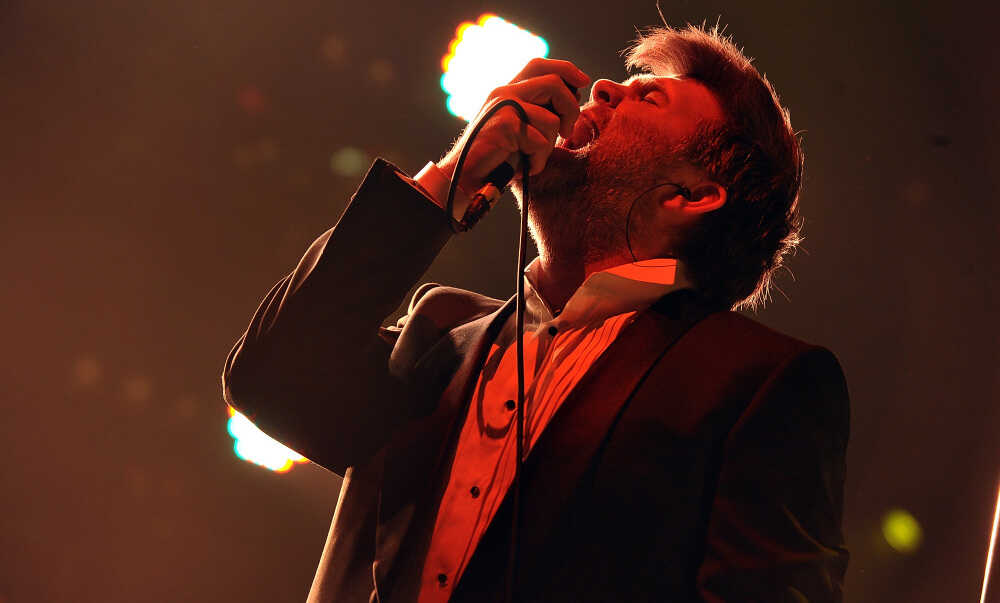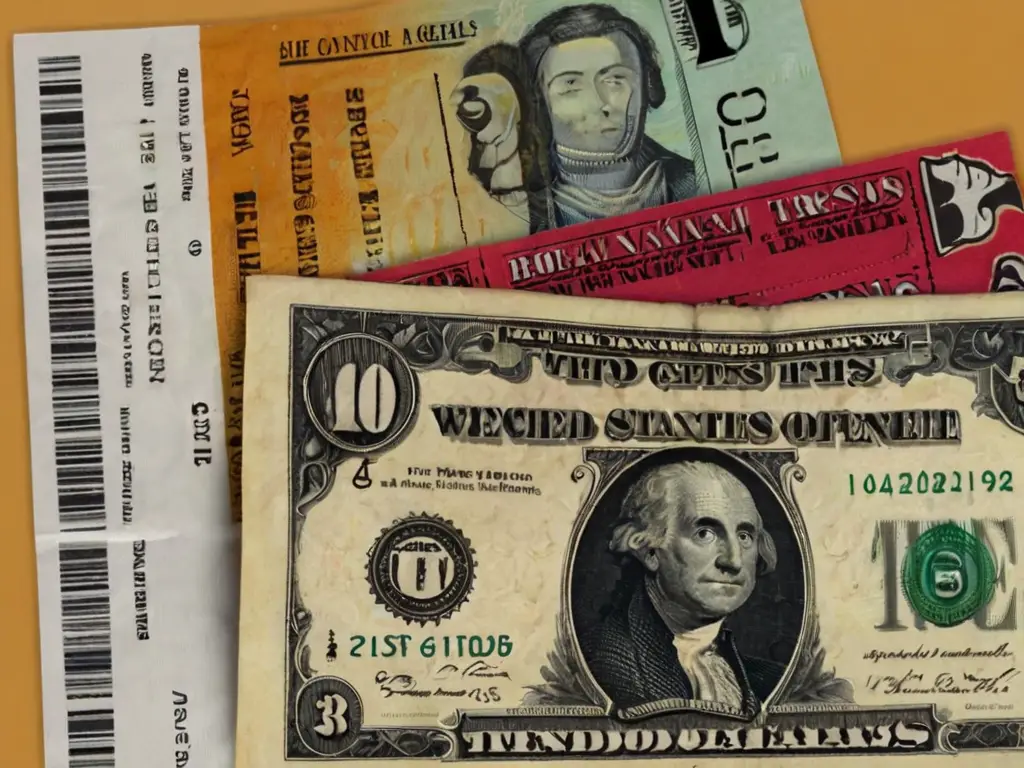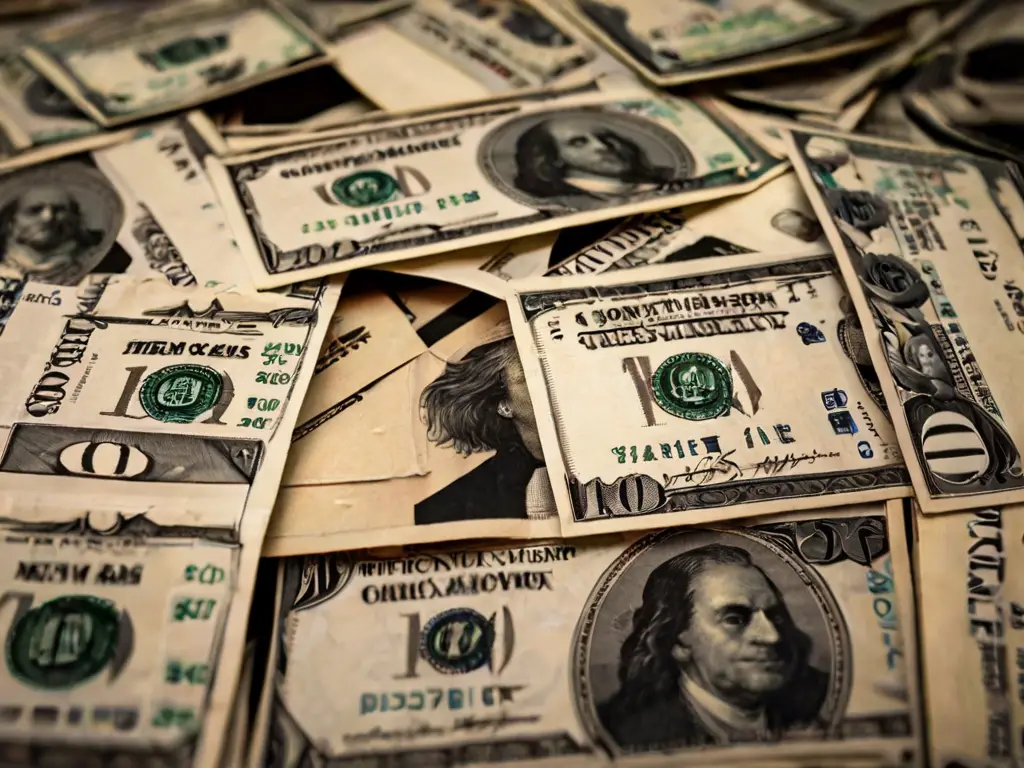Music fans love going to see their favorite bands and artists live in concert. But have you ever wondered where the money from your ticket purchase goes? Who gets the money from concert tickets? The answer may surprise you. It turns out that most of the money from your ticket purchase does not go to the artist or band performing. In fact, only a small portion of the ticket price is typically used to pay the performers.
So where does the rest of the money go? It turns out that a significant portion of the money from your ticket purchase goes to cover event costs such as venue rental, security, and sound and lighting production. A smaller portion goes to Ticketmaster or other ticketing companies for service fees.
Where Does Money from a Concert Go?
When you buy a ticket to see your favorite band play live, where does that money go? It’s not just the ticket price that goes into making a concert happen – there are many other costs involved. Let’s take a look at where your money goes when you attend a concert.
First, the venue has to be paid for. This is usually done by renting out space at an existing venue, such as a nightclub or theater. The rental fee covers the cost of staffing, insurance, and any necessary repairs or upgrades to the facility. Next, there are the production costs. These include things like stage lighting and sound equipment. If the band is touring with their own equipment, this cost is lower.
But if they’re renting gear for each show, it can add up quickly. Then, there are advertising and promotion expenses. The more people who know about the concert and buy tickets, the better! But getting the word out can be costly, whether it’s through online ads, radio spots, or good old-fashioned flyer printing and distribution. Finally, we come to the musicians themselves. The vast majority of bands do not make millions of dollars per tour – in fact, most make far less than that.
So where does all their money come from? A big chunk of it comes from merchandise sales at concerts (t-shirts, CDs, posters, etc.). That’s why you see so many band members working the merch table after their set! But ticket sales are still vital to their income stream – without them, they wouldn’t be able to keep touring and making music for us to enjoy.

Do Artists Make Money from Concerts?
It is no secret that many artists make a large chunk of their income from touring and performing live. But how exactly do they make money from concerts? Here is a breakdown of how artists make money from concerts:
Ticket Sales: This is the most obvious way that artists make money from concerts. They sell tickets to their shows and keep the profits. Depending on the size and popularity of the artist, ticket prices can range anywhere from $20 to $200+.
Merchandise Sales: Many artists also sell merchandise at their concerts, such as t-shirts, hats, posters, etc. The prices for these items are usually set by the artist or their team, and 100% of the profits go to the artist.
Sponsorships/Advertising: Some larger tours will also bring in sponsorships or advertising deals to help offset costs and increase profits. For example, a popular energy drink might pay an artist to have their product featured at shows or during breaks in between sets. These deals can be worth millions of dollars for major tours.
Overall, there are many ways that artists can make money from concert performances. Ticket sales are usually the biggest source of income, but merchandise sales and sponsorships can also contribute significantly to an artist’s bottom line.

How Much of a Concert Ticket Does the Artist Get?
It’s no secret that artists make the lion’s share of their income from touring. But how much of a concert ticket actually goes to the artist? It turns out it depends on a lot of factors. The first thing to consider is the size of the venue. Artists get paid more for playing at larger venues because they can sell more tickets. The biggest arenas in the world can bring in upwards of $1 million per night for superstars like Taylor Swift or Ed Sheeran.
But even smaller clubs and theaters can be very lucrative for up-and-coming artists. Then there are fees charged by promoters, managers, and agents. Usually, these range from 10-20%. So, if an artist is getting paid $100,000 for a show, they’re actually only taking home $80,000-$90,000 after these fees are deducted. Lastly, taxes also take a chunk out of an artist’s earnings. In the US, performers have to pay both state and federal taxes on their concert income.
This can add up to 30% or more of the total earnings, depending on where the show is taking place and what tax bracket the artist falls into. So how much does an artist really take home from a concert ticket? It varies widely depending on all of these factors, but generally speaking, they usually keep 60-70% of what they make from each sale.

How Much Do Concerts Profit?
How much do concerts profit? This is a question that many people have, especially with the high ticket prices for some shows. The answer may surprise you – most concerts actually don’t make that much money. The biggest expense for any concert is usually the artist’s fee. For example, Beyonce reportedly charges $2 million per show. That doesn’t leave a lot of room for other expenses like production, advertising, and staffing.
And once all those costs are accounted for, there’s not a lot left over in profits. So why do concerts continue to be so popular? Part of it has to do with the experience. Seeing your favorite artist perform live is an unforgettable experience that you can’t get from just listening to their music at home. Additionally, many artists use concert tours as a way to promote their latest album releases.
So, even though they might not be making a ton of money from each individual show, they’re still able to generate buzz and excitement around their new music. At the end of the day, though, most concerts don’t end up being very profitable ventures. But that doesn’t stop fans from flocking to see their favorite artists perform live – it just means that they need to be mindful of how much they’re spending on tickets!
SAVING MONEY FOR CONCERT TICKETS TIPS (I’ve gone to 30+ shows) | ShilaBui
How Much are Concert Tickets Usually 2022
Whether you’re a die-hard fan of a certain artist or just enjoy live music in general, concert tickets can be quite expensive. The average cost of a concert ticket in the United States is $95.60, but prices can range anywhere from $20 to $600 depending on the artist and location. If you’re looking to save money on concert tickets, there are a few things you can do.
First, try to buy tickets as early as possible. Many artists will offer pre-sale tickets to their fans before they go on sale to the general public. If you’re not able to get pre-sale tickets, keep an eye out for sales and promotions offered by ticket vendors.
You might be able to find discounts of 10% or more if you purchase your tickets in advance or during certain times of the year. Another way to save money on concert tickets is by being flexible with your date and time preferences. Many venues will offer cheaper seats for shows that take place during weekday evenings or matinees instead of prime-time weekend concerts.
Keep an open mind when choosing your showtime, and you could end up saving quite a bit of money on your total ticket purchase. If you’re willing to put in a little extra work, it might also be worth considering purchasing resale tickets from sites like StubHub or Vivid Seats.
While you might have to pay slightly above face value for these types of tickets, it’s often still cheaper than buying from the primary vendor (especially if an act is sold out). Just make sure to do your research ahead of time so that you know exactly what kind of seat/section you’ll be getting before making your final purchase decision!

Frequently Asked Questions [FAQs]
Who typically receives the money from concert ticket sales?
Concert ticket revenues are usually distributed among several parties involved in organizing the event. This typically includes the performing artists, their management, the concert venue, promoters, and sometimes ticketing agencies.
How is the revenue from ticket sales divided among these parties?
The distribution of revenue varies based on agreements between the parties involved. Generally, the performing artists receive a significant portion, often through negotiated guarantees or a percentage of ticket sales. The venue may take a cut for providing the space, and promoters may earn a percentage for organizing and promoting the event. Additionally, ticketing agencies may charge service fees, which are deducted from the total revenue.
Do all performers receive the same share of ticket sales revenue?
Not necessarily. The allocation of ticket sales revenue among performers can vary widely based on factors such as their popularity, bargaining power, contractual agreements, and the size of their role in the concert.
Are there other sources of revenue besides ticket sales for concerts?
Yes, concerts generate revenue from various sources, including merchandise sales (such as T-shirts, posters, and albums), sponsorship deals, VIP packages, concessions, and sometimes additional performances or activities associated with the event.
Do artists earn more from ticket sales at larger venues?
Generally, yes. Larger venues have higher seating capacities, which means more ticket sales potential. However, the rental cost of larger venues may also be higher, and there may be additional expenses associated with producing a show in a larger space.
Conclusion
When you buy a concert ticket, you may be wondering where your money goes. The answer depends on the artist and venue. Most of the time, the artist gets the majority of the money from ticket sales. The venue usually gets a smaller percentage, but they also make money from concessions and merchandise sales. Sometimes, Ticketmaster will take a cut as well.
